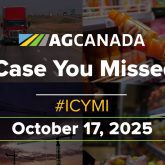The Saskatchewan Party government has dismissed an opposition NDP request to investigate food and meat pricing.
Agriculture minister David Marit said the federal standing committee on agriculture already planned to look at the matter and he said federal policies such as the carbon tax are mostly to blame.
NDP leader Carla Beck and agriculture critic Trent Wotherspoon both raised the issue at a news conference and during Question Period in the legislature. They said a special legislative committee should work with the federal committee on food prices, meat processing and food security in the province’s north.
Read Also

Feds propose overhaul of chronic wasting disease control program
Chronic Wasting disease control program getting updated by Canadian Food Inspection Agency with feedback encouraged from producers.
Beck said the average family will pay $1,000 more for groceries this year and are struggling to do so.
“Apples and beef up six percent, bacon up eight percent, potatoes 20 percent and the cost of carrots up 30 percent,” she said.
In the North, a jug of milk costs $18 and a bag of apples costs $16, she said in the legislature.
“The premier needs to wake up and take this seriously,” she said. “Will he commit to a food pricing investigation today?”
Marit said he has met with industry and partnered with the Saskatchewan Stock Growers Association on a study of beef processing potential in the province. He said the federal Competition Bureau is the best place to take concerns about grocery and meat pricing.
“The challenge that we have, as a farmer I’m paying carbon tax on everything that comes on to my farm and I’m paying carbon tax on everything that leaves my farm,” he later told reporters, and that continues throughout the supply chain to consumers.
“They’re paying carbon tax on my grain going to the elevator, they’re paying a carbon tax on that grain leaving that elevator and being shipped to a mill somewhere, and they’re paying carbon tax for that flour to be shipped back to a bakery somewhere and then they’re paying carbon tax on that bread to be shipped to a store.”
Other factors such as feed prices, labour shortages and costs and utility costs all end up affecting food prices, Marit said.
Wotherspoon said costs are up everywhere but are most apparent at the meat case.
“Since March the price for ground beef is up 10 percent, chicken breasts, 11 percent, chicken thighs and drumsticks, 14 and 29 percent, and steaks are up a whopping 31 percent,” he said.
But those increases are not occurring at the producer level, he said, and asked the government to support an investigation to ensure fairness for producers and consumers.
The SSGA earlier this year studied the potential for more beef processing in the province and also called for an investigation into meat pricing.
A plant could be built, but it would require markets since the province produces more beef than people consume. It would also have to compete against the two major packers in Alberta.
“There’s a lot of dynamics around just saying you’re going to open a beef processing plant,” Marit said.
The government also pointed to the $500 affordability cheques currently in distribution to anyone over 18 who has filed provincial income tax. It says that money will help consumers deal with rising costs.
Meanwhile, the federal agriculture committee began its food inflation study Nov. 21 with a briefing from the Canadian Centre for Food Integrity.
Contact karen.briere@producer.com
















